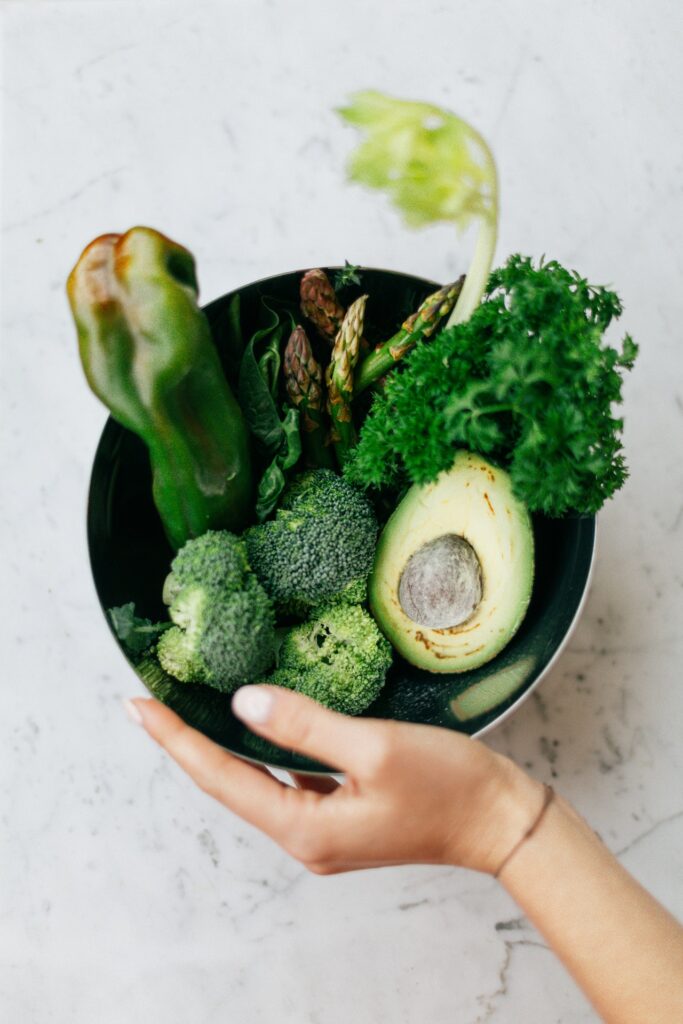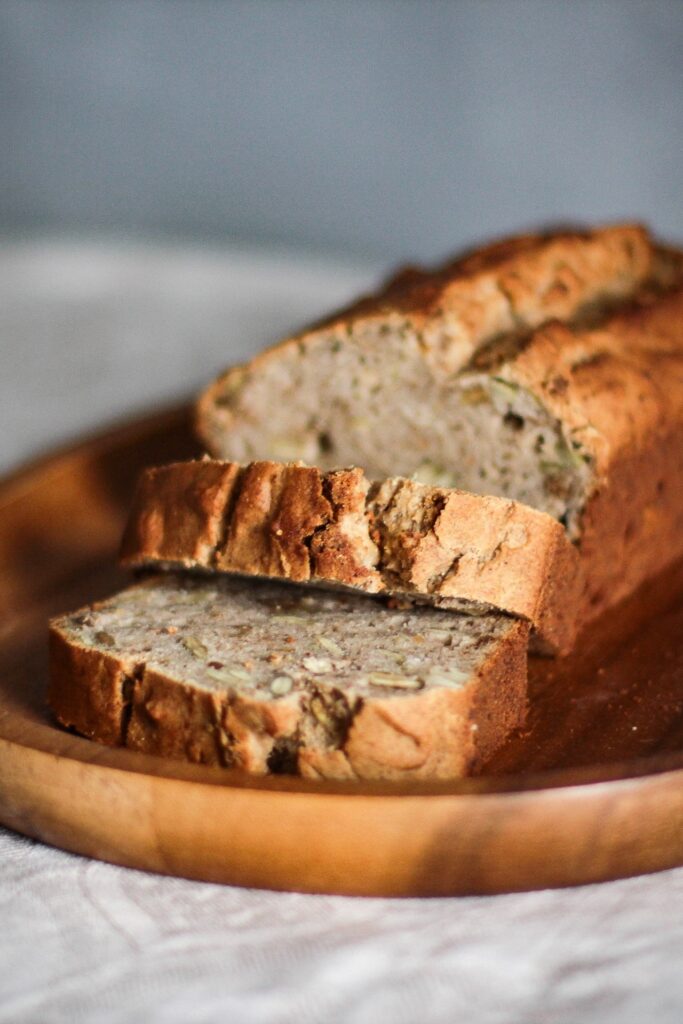WHY AM I SO GASSY?
ANSWERS FROM THE EAST AND WEST
And How To Treat It

Fill in the blank: “Beans, beans, they’re good for the heart! The more you eat, the more you ____.”
Let’s face it: gassiness is normal. Sometimes it’s stinky, sometimes it’s loud, but at the end of the day, gassiness, farting, and bloating is a normal thing that all of our bodies do.
But sometimes, normal gassiness turns into constant and repeat bloating and discomfort. When that happens, it’s time to figure out what’s making you uncomfortable and how you can fix it. Depending on who you ask, there’s a couple of different answers to this question. Let’s break down the reasons and treatments for constant gassiness according to Western medicine, Traditional Chinese Medicine, and the Ayurvedic tradition.
Gassiness According to Western Medicine
The average person farts 5-15 times a day. Now, you probably don’t count your farts, but if you spend all day long with extra gas, it’s probably the result of a food intolerance or digestion problems according to Western medicine.
What Causes Gas and Bloating?
Changes To Your Diet
 Sometimes, gassiness and bloating is the temporary result of changing the foods you eat on a daily basis. If you recently started a new diet like vegetarianism, veganism, or Keto, you might notice that your digestive system needs some time to get used to it. You might also notice nausea, constipation, or diarrhea until your body settles down.
Sometimes, gassiness and bloating is the temporary result of changing the foods you eat on a daily basis. If you recently started a new diet like vegetarianism, veganism, or Keto, you might notice that your digestive system needs some time to get used to it. You might also notice nausea, constipation, or diarrhea until your body settles down.
But remember that if your gassiness doesn’t go away after a week or so, it’s possible that your new diet isn’t right for you. You could be eating a new food that your body is rejecting, or you could be missing some key nutrients and vitamins from foods you’ve stopped eating.
Lactose Intolerance
In the West, lactose intolerance is a common cause of gassiness and digestive discomfort. As many as 50 million Americans struggle to digest lactose, an enzyme found in many dairy products like cheese, milk, and butter. People of color are also much more likely to be lactose intolerant than white people. If you notice that you’re always gassy and bloated after eating dairy products, try nixing them from your diet for a few weeks and see how you feel.
Casein allergy
Lactose is not the only problem with dairy. There are also allergies to casein and whey, two proteins in dairy that are often allergenic. If you merely get gassy after milk, you probably have a problem with lactose. Casein may cause phlegm, nasal congestion, stool abnormalities, bloating and cramps, adult acne, gluten intolerance and eczema.
Celiac Disease and Non-Celiac Gluten Intolerance
 Celiac Disease is a serious allergy while Non-Celiac Gluten Intolerance is kind of like lactose intolerance for gluten. When people with Celiac (about 1% of the population worldwide) eat gluten, their gut becomes inflamed. If they eat too much gluten, Celiacs will have symptoms like
Celiac Disease is a serious allergy while Non-Celiac Gluten Intolerance is kind of like lactose intolerance for gluten. When people with Celiac (about 1% of the population worldwide) eat gluten, their gut becomes inflamed. If they eat too much gluten, Celiacs will have symptoms like
- Abdominal pain
- Bloating
- Gas
- Diarrhea
- Constipation
- Vomiting
Far more people are gluten intolerant than have Celiac. Gluten, which is irritating to most people but would normally be handled by the immune system, but can cause leaky gut. Once it goes into the blood stream, symptoms may be non-digestive as well as digestive. There are strong correlations with autoimmune disease and Non-Celiac gluten intolerance.
Western Ways to Treat Gassiness
In the Western world, most treatments of excess gassiness revolve around avoiding certain foods. Obviously, if you’re lactose intolerant you shouldn’t eat dairy, while Celiacs should avoid gluten at all costs. But here are some other ways western medicine deals with gassiness (WebMD):ce
- Stop chewing gum: The more we chew, the more air we swallow, which then turns into gas that comes out the other end. Talking while you eat is another way to take in excess gas.
- Slow down: Eat slowly to swallow less air.
- Ditch fatty foods: While fat may not cause gassiness, high-fat foods tend to make you bloated.
- Use OTC medications: In the West, there are plenty of over-the-counter meds available to help with gassiness and indigestion, like Lactaid, Beano, activated charcoal, and GasX.
- Don’t eat food that can be fermented by Candida albicans like sweets or juices.
TCM’s View of Gassiness
Gassiness, like most things in Traditional Chinese Medicine, comes down to Qi. Qi is the life force that is inside of everything, including us. To keep our minds and bodies strong, we need to maintain our Qi levels and keep our Yin and Yang levels balanced.
The Spleen
It might be surprising to find out that in TCM, the spleen is more important in digestion than the stomach is. That’s because the spleen draws out the Qi from the food we eat and then sends it throughout our body. When there isn’t enough Qi in our bodies (known as a Qi deficiency), we get excess gas and painful bloating because our digestive process has been interrupted. Other symptoms of low Qi digestive problems include:
- Emotional problems
- Chronic fatigue
- Difficulty pooping
- Mental and physical blockages
The Liver
Flatulence can also be a sign that there’s a problem with your Liver. The Liver and Spleen work closely together to digest food and push out Qi, so when we have low Liver Qi, the Spleen can end up being affected.
The Liver also manages out emotions, so an emotional imbalance can cause issues leading to gassiness. If you’re feeling very anxious and overworked, that could lead to your bloating and farting.
TCM Treatments for Gassiness
 TCM treatments are tailored to each individual based on their health history, symptoms, and internal dispositions, so the best way to fix your gassiness and bloating would be to see a TCM practitioner. You can set up a virtual consultation with one of our Eastern medicine experts so they can come up with the best solution for you and your body. But here are some common cures for extra gas, according to TCM:
TCM treatments are tailored to each individual based on their health history, symptoms, and internal dispositions, so the best way to fix your gassiness and bloating would be to see a TCM practitioner. You can set up a virtual consultation with one of our Eastern medicine experts so they can come up with the best solution for you and your body. But here are some common cures for extra gas, according to TCM:
- Bitter foods: In TCM, there are 5 categories of flavors, and each one has a special ability. Bitter foods are great for stagnant Liver Qi, so try to add some onions, mint, kale, cumin, beets, or broccoli rabe to your diet.
- DIY acupressure: If you rub your stomach in 100 clockwise circles, essentially following the large intestine, you’ll help activate your spleen and stomach Qi after a meal.
- Avoid damp foods: In TCM, damp is one of the external factors that can make us sick. By avoiding certain damp foods, like dairy, fatty foods, and alcohol, you should be able to reduce your gassiness.
- Herbal preparations: Bao He Wan or Po Chai are designed to help with food stagnation.
How Ayurveda Understands Gassiness
In the Ayurvedic belief, each of us has the five elements of space, air, fire, water, and earth inside us. The different combinations of these energies create three groups of dosha. These are Vata dosha (space and air), Pitta dosha (fire and water), and Kapha dosha (water and earth). You have all of these Vata inside you, but one dosha is usually stronger than the other two.
When it comes to gassiness, Ayurveda blames it on too much vata dosha, aka air energy. However, there are other things entirely outside of your control that can cause bloating, like:
- Autumn
- Constant stress
- Constipation
- Poor diet full of processed foods
- Eating too much
- Food intolerances
Ayurvedic Treatments for Bloating and Gas
Because gassiness and bloating is caused by too much vata, it’s important to soothe and reduce that energy inside of you. You can do this by following a diet with these rules:
- Avoid food that is raw, cold, dry, or rough. Instead, opt for warm meals like soup, pasta, or curry.
- Use warming spices like ginger, turmeric, cumin, and cinnamon to help warm up your vata.
- Drink warm drinks like tea or hot water.
- Eat as much unprocessed, natural food as you can.
- Don’t eat any nuts, because these can be hard to digest when you have high vata levels.
- Triphala is a good herbal preparation for gassiness, especially with a sluggish bowel.
It’s also important to eat more mindfully and ideally, in one place. You should avoid eating on the go, because this added stress raises our vata. To help stoke your digestive fire, try and eat your meals in a relaxed setting.
It’s normal to be a little gassy sometimes, but when it goes from occasional to non-stop, it’s time to do something about it. If you’re someone with chronic bloating, hopefully you can use some of these tips, tricks, and treatments from the East and West to help soothe your stomach.
Newer
What To Know About Arthritis and TCM: Symptoms, Diagnoses, and Treatments
Older
Food As Medicine: The Natures and Flavors of Food According to TCM
Comments (0)
Leave a reply
You must be logged in to post a comment.




